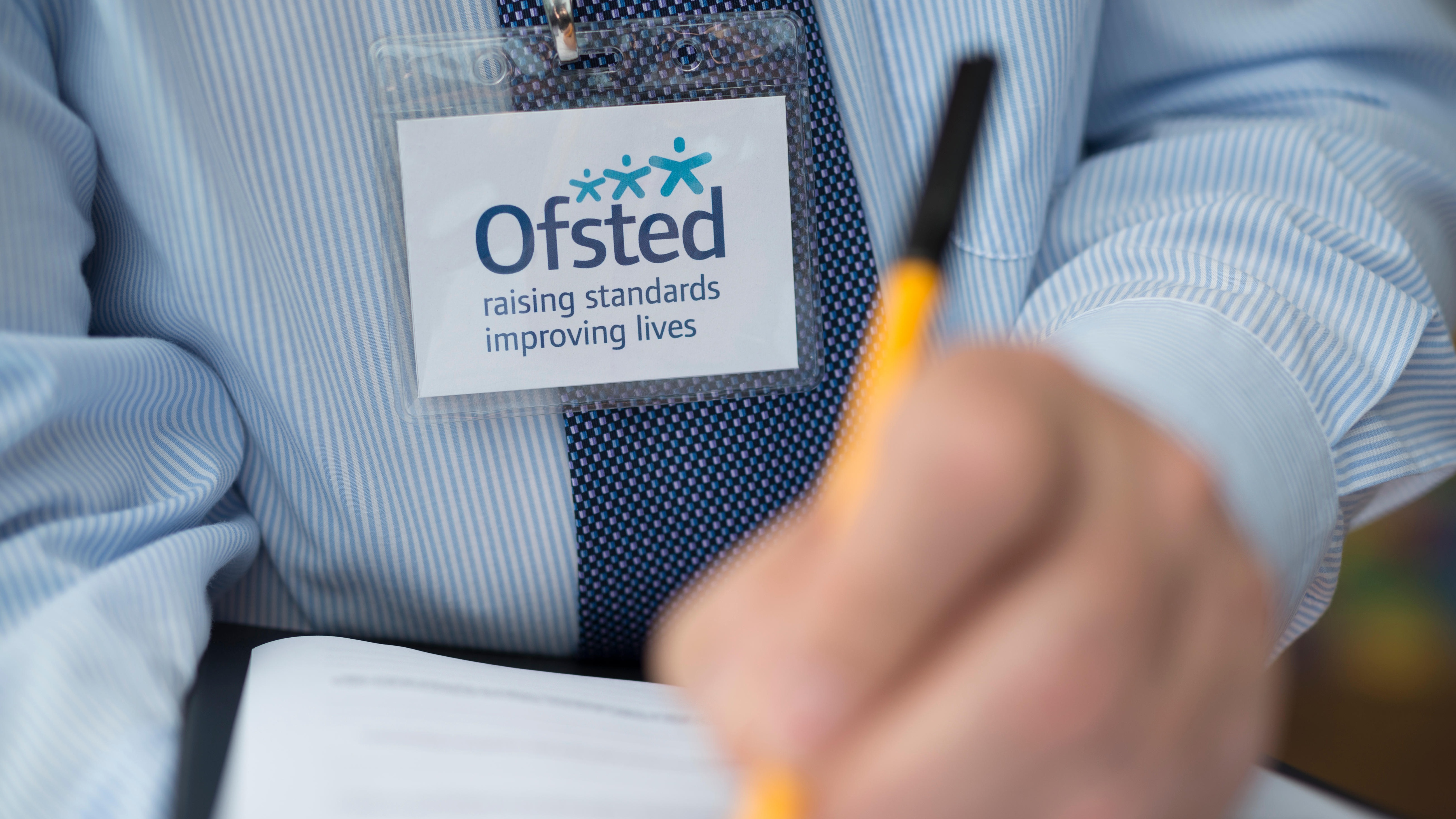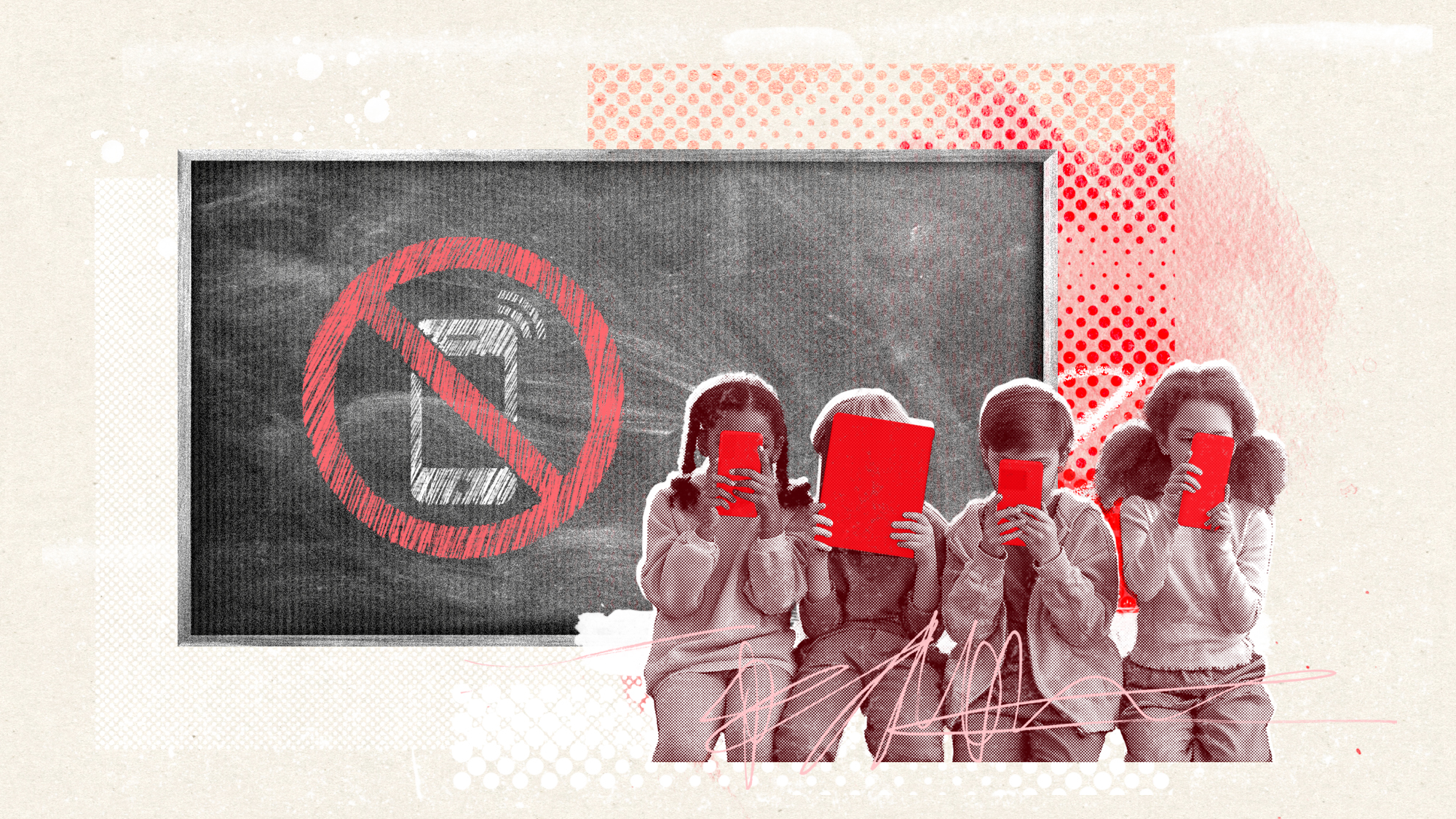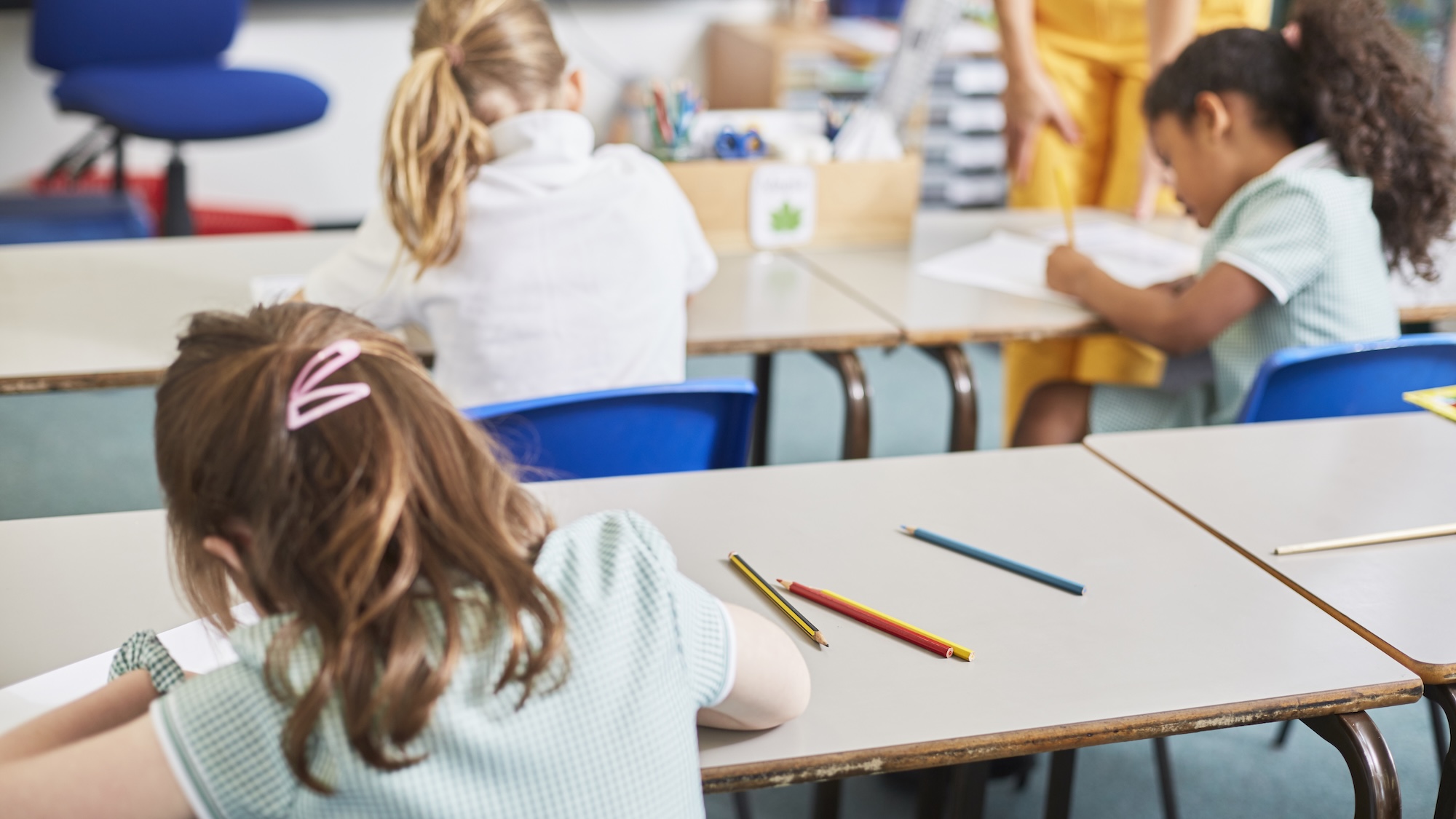Does Ofsted require improvement?
Most teachers think the education watchdog does not drive up standards

A free daily email with the biggest news stories of the day – and the best features from TheWeek.com
You are now subscribed
Your newsletter sign-up was successful
Fewer than one in ten teachers think Ofsted has raised standards at their school, according to polling for The Times.
A survey of 5,000 teachers found “overwhelming levels of unhappiness” with the government watchdog, as the vast majority of teachers told pollsters they would rate the regulator as “inadequate” or “requires improvement”.
Just 0.5% of teachers polled by the Times Education Commission said Ofsted’s performance was outstanding, 13% said it was good, while 41% said that it required improvement, 38% thought that it was inadequate, and 8% did not know.
The Week
Escape your echo chamber. Get the facts behind the news, plus analysis from multiple perspectives.

Sign up for The Week's Free Newsletters
From our morning news briefing to a weekly Good News Newsletter, get the best of The Week delivered directly to your inbox.
From our morning news briefing to a weekly Good News Newsletter, get the best of The Week delivered directly to your inbox.
Respondents were also asked whether Ofsted had improved education at their school: 32% disagreed that the regulator had, and 27% strongly disagreed. Just 8% agreed while the rest could not answer.
The commission said that its final report showed there has been a “breakdown of trust” between Ofsted and schools, reported The Times, and will recommend reforms so that the watchdog works more collaboratively with headteachers.
The paper reported that Amanda Spielman, Ofsted’s chief inspector, “said recently that schools overwhelmingly found Ofsted inspections to be fair and constructive, and dismissed suggestions that the pressure of scrutiny was driving headteachers from the profession”.
Schools under intense pressure after Covid
At a time when many schools are still dealing with the fallout of Covid-19, which saw a heightened number of pupil and staff absences, the government has given Ofsted an additional £24m to “accelerate inspections” of schools, reported The Guardian last year.
A free daily email with the biggest news stories of the day – and the best features from TheWeek.com
But headteachers have said that the “intense pressure” of Ofsted inspections means that school staff are resigning from the profession.
“Our inspector was intimidating, raising his voice and making accusations. There was not one apology each time I proved his accusation unfounded. He just swiftly switched to another accusation, then another,” one headteacher told the paper. The inspector’s questioning also unnerved some students. “They felt they were being interrogated and pressured to give negative feedback.”
One primary school adviser, Ruth Swailes, told the paper that inspectors refused to understand the difficulties placed on schools by the Covid-19 pandemic.
Swailes said: “I’ve been told inspectors are using phrases like ‘Covid is no longer an excuse’. In one instance where a member of the school community had died of Covid, the headteacher was told: ‘I don’t want to hear the word Covid’.”
At the time, a spokesperson for Ofsted said: “Children have had their education seriously disrupted, so it’s right that we look at what is happening to get them back on track.”
She added: “Just as before Covid, the vast majority of schools tell us that inspections are constructive and likely to help them improve. And our latest inspections show that many schools are improving.”
Ofsted inspections ‘unreliable’ says expert
In an article for the National Education Union, Frank Coffield, education professor at UCL Institute of Education, wrote that the methods employed by Ofsted are “unreliable, invalid, ineffective and unjust, especially to schools serving the poorest communities”. He added that most teachers viewed the watchdog “not as a useful lever for change, but as a hammer that creates a climate of fear and intimidation”.
Coffield said that the pressures created by Ofsted “cascade down through the system increasing teachers’ stress and workloads to the point of exhaustion and burn-out” and pointed to polling which suggested that “7 out of 10 teachers have seriously considered leaving the profession”.
Popular with parents
But supporters of the current system of inspection point to the “large degree of public support” for its simple grading system, which parents can easily understand, said Politics.co.uk.
According to a 2018 study by ParentKind, over half of parents said they looked at Ofsted’s report when choosing a school. Another similar study by YouGov suggested that 74% of parents agreed that the information Ofsted provided was reliable, while 67% of parents agreed that Ofsted is a valuable source of information, and nearly nine in ten parents knew the rating their child’s school received at the last Ofsted inspection.
Nevertheless, headteachers have said the commission’s survey findings should worry the regulator. Geoff Barton, general secretary of the Association of School and College Leaders, told The Times: “The fact that so many teachers have no confidence in Ofsted and rate its performance as being so poor really should be a source of concern both for the inspectorate and the government.
“It means that the profession has little faith in the body responsible for overseeing standards,” he added.
-
 Why is the Trump administration talking about ‘Western civilization’?
Why is the Trump administration talking about ‘Western civilization’?Talking Points Rubio says Europe, US bonded by religion and ancestry
-
 Quentin Deranque: a student’s death energizes the French far right
Quentin Deranque: a student’s death energizes the French far rightIN THE SPOTLIGHT Reactions to the violent killing of an ultra-conservative activist offer a glimpse at the culture wars roiling France ahead of next year’s elections.
-
 Secured vs. unsecured loans: how do they differ and which is better?
Secured vs. unsecured loans: how do they differ and which is better?the explainer They are distinguished by the level of risk and the inclusion of collateral
-
 The pros and cons of banning cellphones in classrooms
The pros and cons of banning cellphones in classroomsPros and cons The devices could be major distractions
-
 School phone bans: Why they're spreading
School phone bans: Why they're spreadingFeature 17 states are imposing all-day phone bans in schools
-
 Schools: The return of a dreaded fitness test
Schools: The return of a dreaded fitness testFeature Donald Trump is bringing the Presidential Fitness Test back to classrooms nationwide
-
 Send reforms: government's battle over special educational needs
Send reforms: government's battle over special educational needsThe Explainer Current system in 'crisis' but parents fear overhaul will leave many young people behind
-
 Education: Can public schools be religious?
Education: Can public schools be religious?Feature A Supreme Court seems ready to rule in favor of religious charter schools in Oklahoma, which could reshape public education
-
 America's academic brain drain has begun
America's academic brain drain has begunIN THE SPOTLIGHT As the Trump administration targets universities and teachers, educators are eying greener academic pastures elsewhere — and other nations are starting to take notice
-
 Schools' Send crisis: how can it be fixed?
Schools' Send crisis: how can it be fixed?Today's Big Question Government urged to reform support for children with special educational needs and disabilities and save councils from bankruptcy
-
 Unschooling: the radical education trend raising eyebrows
Unschooling: the radical education trend raising eyebrowsUnder the radar Some parents are letting their children lead their education